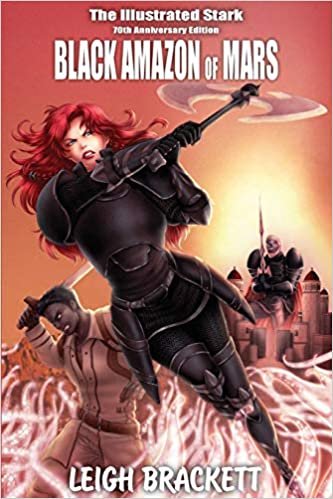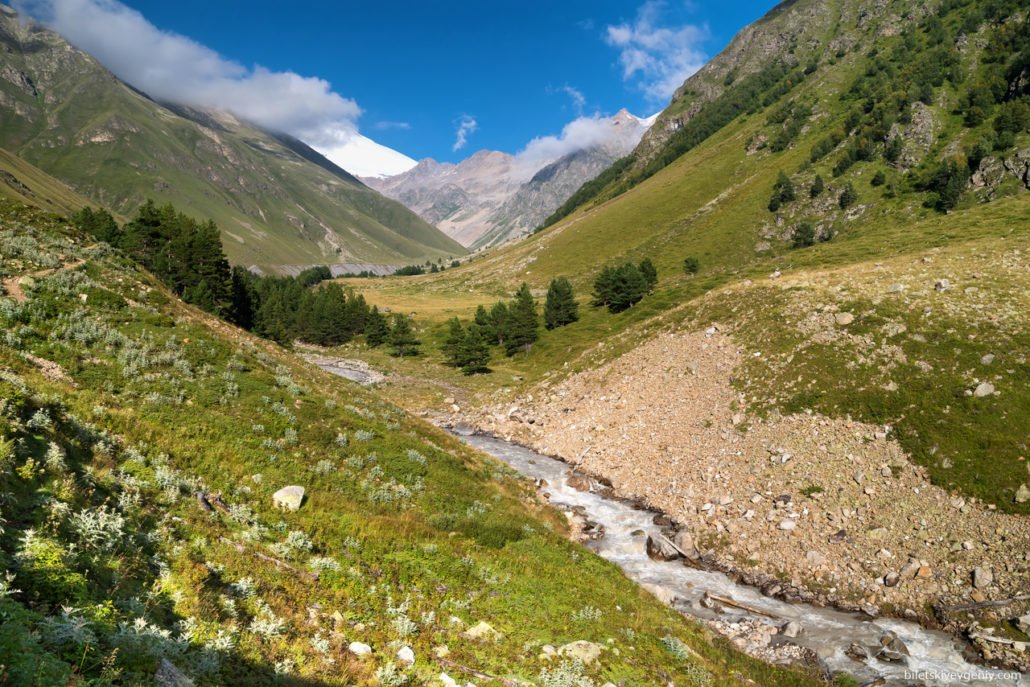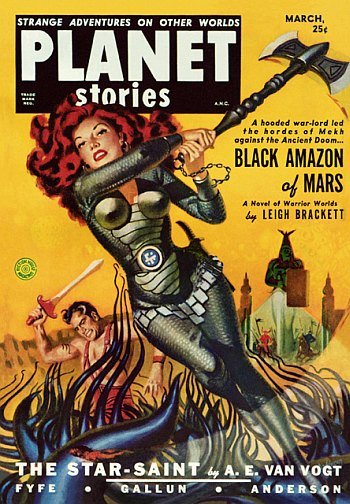Black Amazon of Mars by Leigh Brackett

Happy New Year to all the readers of With Both Hands! I thought I’d start off this year with a classic work, Black Amazon of Mars. You can get a free Kindle version, but there is also an illustrated edition put out by Cirsova. [Amazon links]
Even though this is the third story that Eric John Stark appeared in, I think you could easily pick up this story and enjoy it. Like a lot of the sword and planet offerings, Stark has a flat character arc and the structure of the stories is episodic, so you don’t need to know what happened in previous stories. Where Brackett makes this story shine is in her tight plotting and fantastic action sequences. The story never drags, it moves crisply from crisis to crisis without a backward glance.
The vividness of the characters is striking given how spare the story and dialogue are. But then again, I think good characterization is to instantiate a particular version of an eternal archetype of personality. If you think characterization takes a lot of talking, you might be disappointed. Brackett’s Mars has parallels with the American frontier, but could just as easily be the Caucasus. Wide open, windswept places full of hard men and danger. And of course lost civilizations, deserted [or are they?] ruins, and decadent cities long past their prime. I can see why this particular story is famous.

Black Amazon of Mars was published in March of 1951, and is now almost 71 years old. Leigh Brackett’s work in particular is a fascinating contrast with the standard view of pulpy science fiction from the middle of the twentieth century, that women only existed in the stories to scream and be rescued. Isaac Asimov claimed that this was so, and to give him some credit the pulp that we still read seventy years later is the stuff that survived the test of time, and Asimov was probably exposed to the kind of stories that everyone would rather forget.
But, on the other hand, Brackett also got the cover illustration of that March 1951 issue of Planet Stories, so clearly both women characters and women authors weren’t actually in the position some people likely imagine.

However, I do think you can see what was the real taboo of the time in that Eric John Stark did not appear on that cover as he was described in the book. The Cirsova cover, which is clearly an homage to the Planet Stories cover, depicts him with the skin tone that Brackett gave him.
Another thing that is striking is the book includes two implied sexual encounters, tastefully and subtly done, there isn’t any of the punny word play or elliptical phrasing that characterized the “spicy” pulps. Just two women characters who were clearly interested in a powerful and exotic man and the result was omitted but obvious. This was written a decade later than what Asimov was referring to in his “Women and Science Fiction” essay, but the impression I get is so different than what he said that I suspect he either didn’t have the whole picture, or he was deliberately omitting contrary evidence.
If there is going to be sex in a book, this certainly seems like the way to go. The vast majority of kids could read it and not even know what happened. Everything was entirely in character and entirely believable. Authors take note.
I liked Brackett’s short story collection about Mars, and from this story strengthens my impression of the quality of her work. There are several other stories featuring Stark, including a post interplanetary exploration reboot in an extrasolar setting. Black Amazon of Mars is good enough that I suspect those would be worth reading too.
My other book reviews | Reading Log
Other works by Leigh Brackett
The Coming of the Terrans



Comments ()